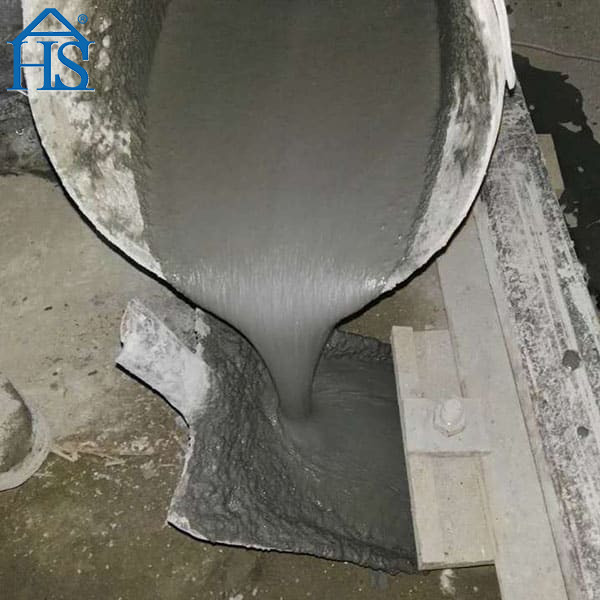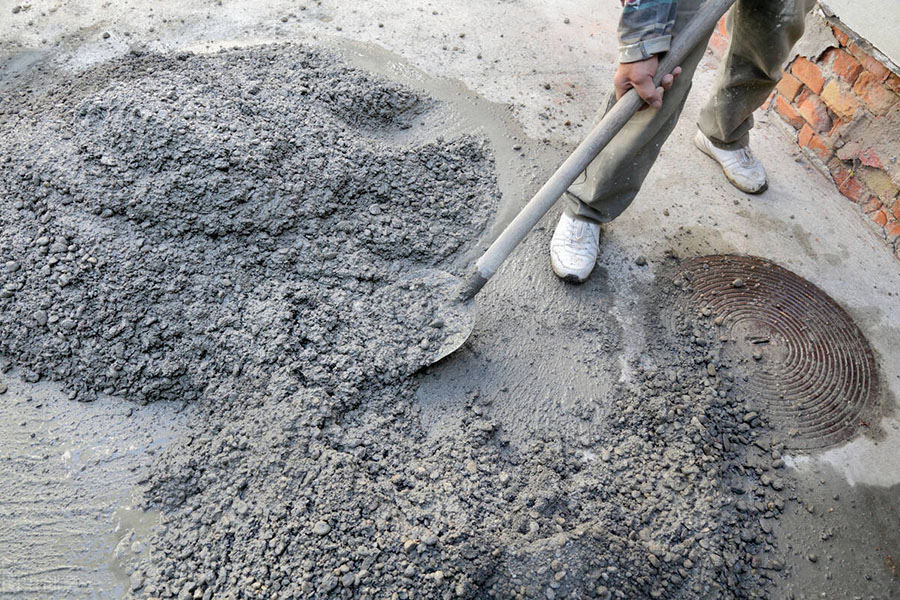Grouting agent (material)
Grouting agent (material) has the excellent performance of micro expansion, non-shrinkage, large flow, self-compacting, very low water secretion rate, high filling, small diameter of thin air bag foam layer, high strength, rust prevention and rust inhibition, low alkali and no chlorine, high bonding, green and environmental protection. It does not contain oxides, chlorides, sulfites and nitrites, which are harmful components to steel, and is made of high performance plasticizer, surfactant, calcium silica micro-expanding agent, heat of hydration inhibitor, migrating rust inhibitor, nano-grade mineral calcium silica-aluminum-iron powder, stabilizer and other refined composite of pressurized slurry or with low alkali and low heat silicate cement.
Silica Fume in Grouting
Silica fume is one of the necessary raw materials for the production of high-strength non-shrinkage grout, pressure grout and pressure grouting agent, which is suitable for the grouting of various prefabricated beams, the grouting between the base plate of the bearing and the supporting mat of the pier, the secondary grouting of the equipment foundation, and the reinforcement and repair.
Silica fume has the advantages of early strength, high strength, self-flowing, micro-expansion, oil seepage resistance, durability, good weather resistance, low alkali corrosion resistance, etc.
Silica fume will have many good effects on the performance of the grout. The beneficial effects of amorphous and very fine silica fume on high performance grout are manifested in both physical and chemical aspects:
- Acting as an ultrafine filler.
- Acts as a crystalline nucleus in the early hydration process and has high volcanic ash activity.
Characteristics of silica fume in grouting

1. Accelerate the hydration of the gelling material system
The effect of silica fume on the hydration exotherm of the gelling material system
2. Improve the strength of grout
When silica fume is used with high efficiency water reducing agent, silica fume reacts with hydration product Ca(OH)2 to produce hydrated calcium silicate gel, which fills the gap between cement particles, improves the interface structure and bonding force, and forms a dense structure, thus significantly improving the strength of grout. Generally, the amount of silica fume mixed with 5%~10% can produce super high strength grout with compressive strength of 100MPa.
3. Increase density
Silica fume particles are very small and can fill in the gaps between cement particles. The dense accumulation of particles can reduce water secretion, reduce capillary Taiyuan high-strength non-shrink grout and average pore size. The amount of silica fume can get good admixture effect when the admixture is 5%~10%. Water reducing agent should be used to ensure that the silica fume and cement dispersion.
4. Improve grout segregation and water secretion performance
5. Improve the anti-seepage and chemical corrosion resistance of grout
6. The effect of silica powder on the anti-freezing property of grout
Regarding the effect of silica powder on the frost resistance of grout, a large number of studies at home and abroad show that, in the case of equal replacement, the frost resistance of grout with less than 15% admixture is basically the same, and sometimes it will increase (such as when the admixture is 5% to 10%), but the admixture exceeds 20% will significantly reduce the frost resistance of silica powder grout.
In the high-performance grout, from the reduction of early plastic shrinkage and dry shrinkage considerations, generally control the amount of silica powder doping in the total cgm grout how much a ton of cementing materials within 10% of the amount, when the bubble spacing coefficient is reduced, the frost resistance is often improved.
7. silica powder and alkali-aggregate reaction
Alkali-aggregate reaction is the reaction between the active silicon oxide in the aggregate and the alkali in the cement to generate water absorption products and increase the volume, resulting in the expansion and cracking of the grout. When silica fume is added to the grout, the reaction between silica fume and alkali in cement can prevent this excessive expansion.
Domestic and foreign practice shows that silica fume is beneficial to inhibit the alkali-aggregate reaction in grout. When calculating the total amount of alkali in the grout, the effective amount of alkali carried by silica fume is calculated as 50% of its total alkali content.





